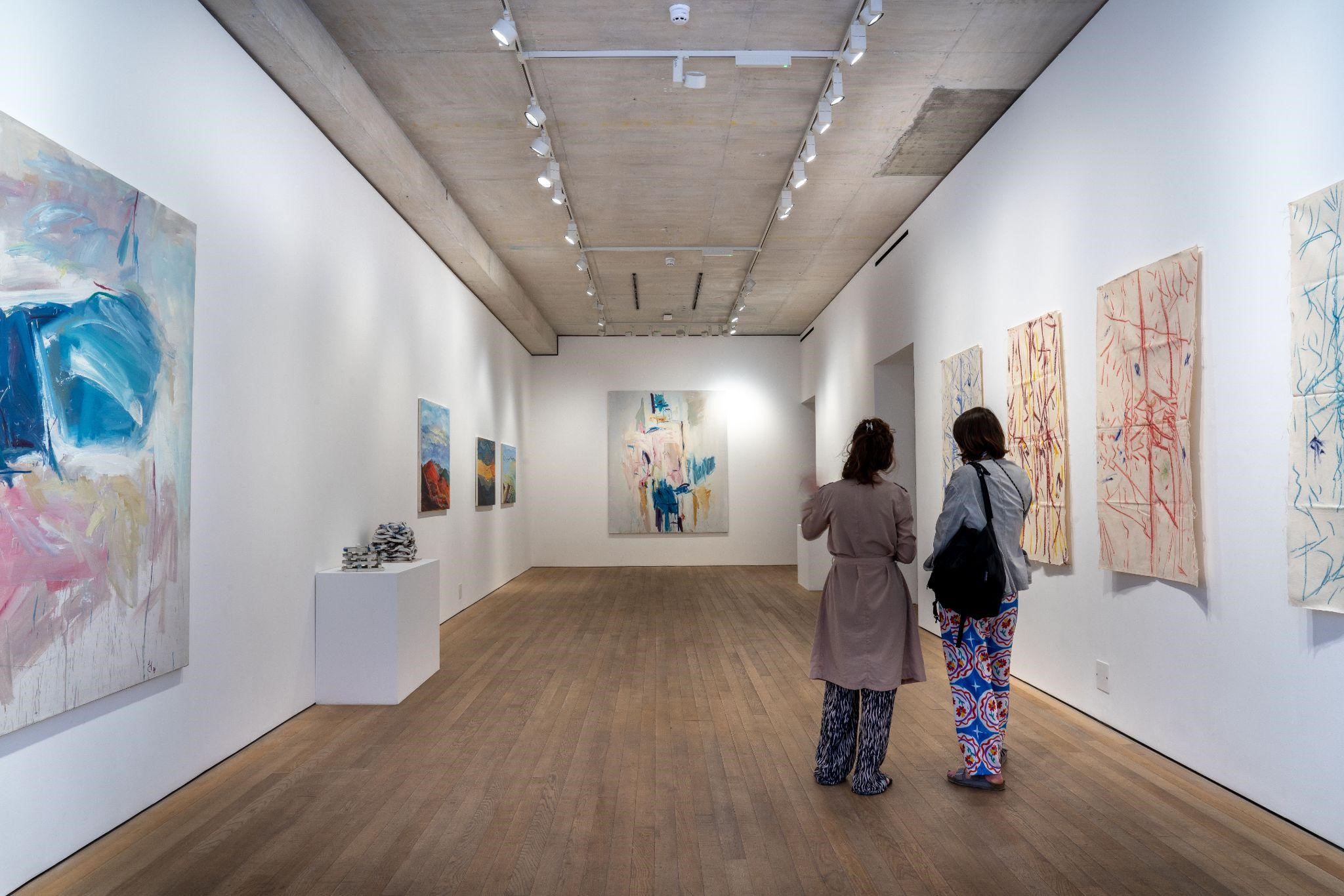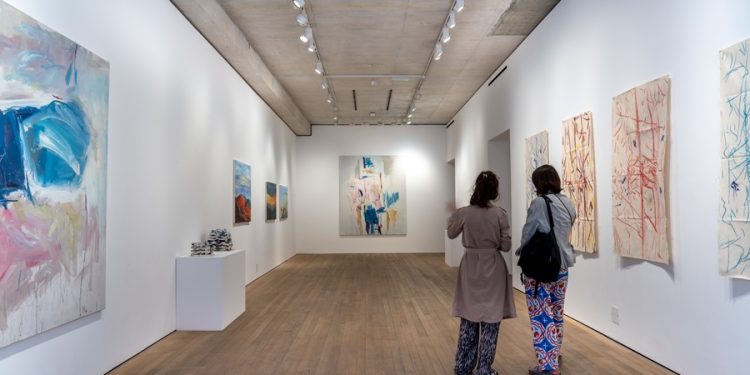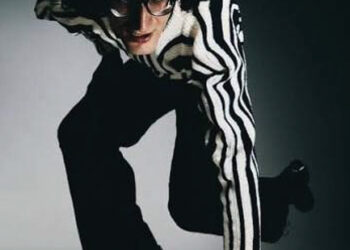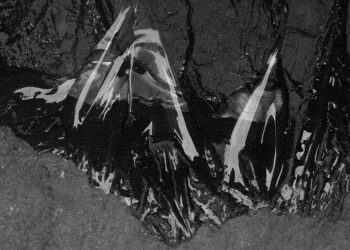Tbilisi Art Fair

The Tbilisi Art Fair 2024 showcased Georgia’s growing prominence in contemporary art, hosting over 30 galleries with a dynamic mix of local and international talent. Featuring 25 Georgian galleries and exhibitors from 15 countries, the event fostered cultural exchange and collaboration, solidifying Tbilisi’s position as a regional art hub and providing vital exposure for emerging artists.
Venice Biennale

Georgia’s pavilion at the Venice Biennale presented The Art of Seeing – States of Astronomy, a collaborative project that celebrated the 1964 art book Maximiliana by Ilia Zdanevich and Max Ernst. Dedicated to Wilhelm Ernst Tempel (1821–1889), a German astronomer and lithographer known for his unconventional and sensual approach to astronomy, the work honored a figure often overlooked by his contemporaries due to his lack of formal academic training.
Curated by Julia Marchand (France) and David Koroshinadze (Georgia), the exhibition wove together archival materials and a dynamic “living archive” to bring the story of Maximiliana to life, transforming the language of the cosmos into a vivid artistic narrative. The pavilion also featured contemporary reinterpretations by Nika Koplatadze and Grigol Nodia’s video art.
Culture Week Tbilisi 2024

Culture Week Tbilisi 2024 took place at Factory Tbilisi, the former Coca-Cola factory transformed into an innovative art and culture hub. The event showcased a vibrant program of activities, offering a rich blend of art, film, theater, and exhibitions.
The program included documentary film screenings, theater and dance performances, and three curated exhibitions featuring works by Ukrainian, Georgian, and international artists.
EVROVIZION.CROSSING STORIES AND SPACES – A Touring Exhibition in Tbilisi

The Tbilisi Photography & Multimedia Museum (TPMM) hosted the exhibition EVROVIZION. CROSSING STORIES AND SPACES.
Curated by Sabina Klemm and Sanja Kojić Mladenov, the exhibition explored Europe’s evolving social and political landscapes and examined the multifaceted concept of European identity. Organized by IFA – Institut für Auslandsbeziehungen, the project was presented in Tbilisi in collaboration with Goethe-Institut Georgien and TPMM.
EVROVIZION focused on underrepresented and marginalized cultural and geopolitical regions, particularly in southeastern and eastern Europe—spaces often overlooked in mainstream discourses and exhibition narratives. As the exhibition toured, it evolved by integrating new artistic contributions from each local context, fostering dynamic collaborations with regional artists and curators. The Georgian iteration included a newly commissioned work by artist Nika Kutateladze, curated by Ana Gabelaia.
FREIZE London

In July 2024, Frieze’s No.9 Cork Street hosted a compelling group show spotlighting female-led galleries from Tbilisi, Georgia. The participating galleries—E.A Shared Space, Gallery 4710, The Why Not Gallery, MAUDI, and CH64 Gallery—collaborated with Reach Art Visual to bring a vibrant showcase of Georgian art to an international audience.
As the world’s leading platform for modern and contemporary art, Frieze is dedicated to fostering the talents of artists, galleries, collectors, and art enthusiasts. On the first floor, viewers experienced the exhibition portrayed by Reach Art Visual, featuring works by Tamuna Sirbiladze, Alexander Bandzeladze, and Lia Bagrationi, alongside two striking pieces by emerging artist Merab Gugunashvili, represented by Gallery 4710.
At this exhibition Reach Art Visual, a visual art organization specializing in art identity-oriented experiences, constructed the show’s narrative around the history of Georgian abstraction, highlighting the resilient and vibrant spirit of Georgian artists amid the nation’s rising political and social upheaval.
Tbilisi Architecture Biennial 2024

The fourth edition of the Tbilisi Architecture Biennial, Correct Mistakes, took place in September and October 2024, offering a dynamic program of exhibitions, workshops, installations, symposiums, guided tours, film screenings, and lectures.
This year’s Biennial explored the complex relationship between people and natural resources, emphasizing the critical roles of architects, urban planners, communities, policymakers, and environmentalists in addressing these pressing challenges.














